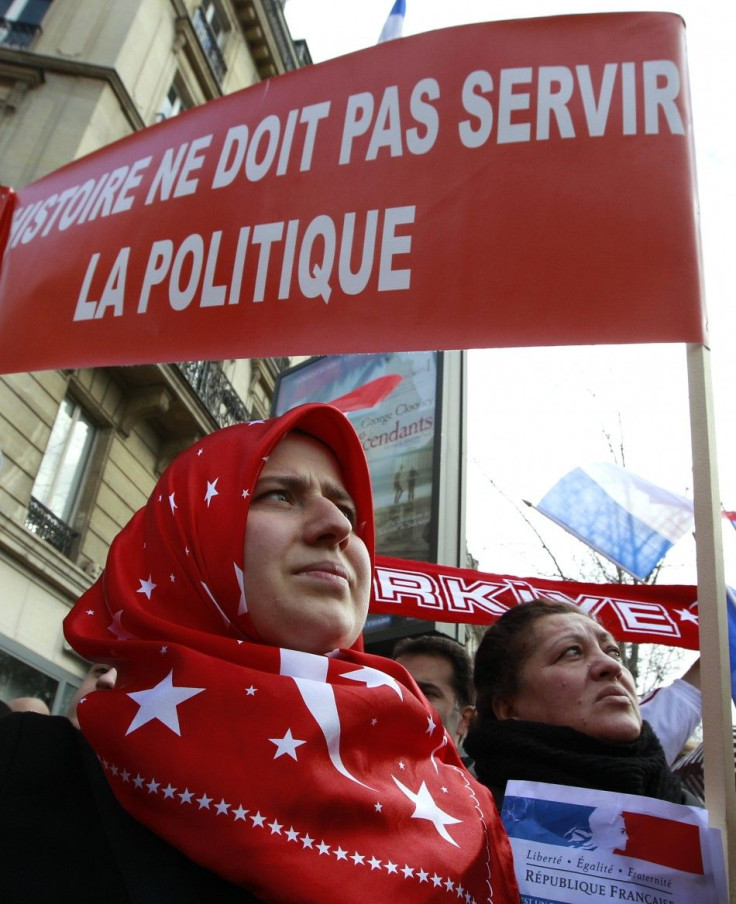Armenian Genocide Recognition Law: Is France Criminalizing Free Speech?
OPINION

Taking the international rhetoric on the Armenian genocide to the next level, the French government has approved a bill making it illegal to deny that the massacre of Armenians by Ottoman Turks in the first quarter of the last century was genocide.
As expected, the approval of the bill, on Monday, sparked an angry retaliation from Turkey, including a threat of total rupture of diplomatic ties with France.
However, the international debate currently involving France, Armenia and Turkey seems to conveniently overlook a key controversial element in the new law - it criminalizes free speech.
The adoption of the new law seems to erroneously suggest that France has only recently joined the global crusade to recognize the Armenian genocide. The fact is France passed a bill, in 2001, officially accepting the Armenian massacre between 1915 and 1923 was genocide.
The new genocide law - which penalizes anyone who chooses to have a different opinion about the Armenian mass killing from that which the constitution mandates - is clearly in conflict with France's obligation as a democracy to respect free speech.
The new law should, perhaps, have been named Anti-Genocide Denial law, rather than the widely used but more general term, Genocide Recognition law.
An overwhelming majority of historians and academic institutions across the world have already recognized the Armenian mass killing was genocide. However, this is not enough for legislators to lock history up or constitutionally protect history, effectively criminalizing dissent.
Officially recognizing the Armenian Genocide is one thing, and I have no problem with it. Criminalizing free speech is quite another. The fact that there is a consensus on a particular view doesn't justify declaring dissenting views illegal; there is value in periodically reevaluating our conclusions in cases like this. France should be ashamed of this attack on freedom, a commentator wrote on an Internet forum.
The law which mandates a maximum 45,000 Euro ($58,000) fine and a year in jail for offenders has met with criticism for being grossly anti-democratic. The suggestion that the State is better equipped than the people in determining truth is high-handed, to say the least.
As repugnant as the atrocities against ethnic Armenians were, it is undesirable for States to interfere with the right to know and the search for historical truth, especially when those events took place in another country, Article19.org, an organization defending freedom of expression and information wrote in a post, published while the law was still a draft.
The notion of forbidding words, even ugly words, is repulsive in the extreme. It is very sad to see one of the cornerstones of European democracy taking that path. France has lost all moral right to condemn anyone else for repressing the right to speak freely, wrote another commentator.
When there is no social necessity in France to limit political views, as is the case during a State-imposed emergency, the new law should be deemed undemocratic and orchestrated merely to restructure its ties with Armenia and to appease 500,000 ethnic Armenians in France, in the wake of a two-round presidential vote scheduled for April 22 and May 6.
© Copyright IBTimes 2024. All rights reserved.





















